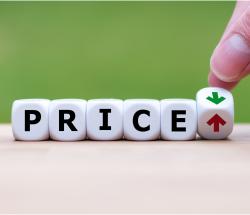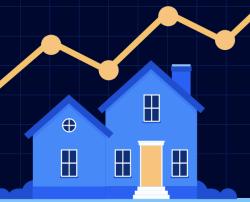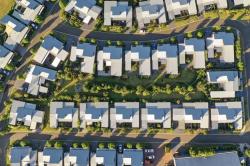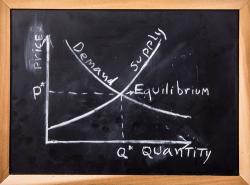Market comment: Stability brings optimism and buyers to the Sydney market
Thu, 15 Oct 2020
February 11, 2015
0 comments
Market Comment
 The Sydney property market continues to display strength despite the pandemic’s impacts on the Australian economy. In part, this is a reflection of a national trend with the latest data from September showing a rise in new listings in all capital cities with six of the eight capitals recording increases in home values.
The Sydney property market continues to display strength despite the pandemic’s impacts on the Australian economy. In part, this is a reflection of a national trend with the latest data from September showing a rise in new listings in all capital cities with six of the eight capitals recording increases in home values.
To quote The Guardian’s economic expert, Greg Jericho: “The Australian housing market is a peculiar beast. You would think that in the midst of a worldwide pandemic that has seen Australia’s economy crash by seven per cent, and around one in five Australians either unemployed or desiring more hours, that house prices might take a tumble. But no.”
Figures from CoreLogic show that Sydney and Melbourne experienced only modest declines in housing prices with Sydney’s falling a miniscule -.03 per cent in the month of September, the smallest decline since March. (It should be noted that in the media this figure varied from -.01 to -0.04 per cent which depended upon the source of data used; we use CoreLogic for the sake of consistency in this article.)
This stability in housing prices, together with a favourable response to the October federal budget, was mirrored in the latest Westpac consumer survey which saw the national “house price expectations” index soar upwards by 31.5 per cent to 117.3 with all states showing impressive recoveries from earlier this year. The index in NSW was particularly outstanding with an 11.3 per cent rise to 120.4.
Westpac chief economist Bill Evans said about this result: “Such a development must be attributable to the response to the October federal budget; ongoing success across the nation in containing the COVID-19 outbreak; and the expectation that the Reserve Bank board is likely to further cut interest rates at its next meeting on November 3.”
The Sydney market’s strong performance over recent months is the result of unflagging buyer demand that has stabilised prices and even produced record sales in many areas, most notably the city’s Eastern suburbs where a 3-bedroom apartment listed for the first time in 70 years recently sold for a bit more than $13 million and a house in Vaucluse smashed the Australian auction record when it sold for $24.6 million.
Rich Harvey, CEO and Founder of Propertybuyer, told the Australian Financial Review that a limited supply of luxury properties was pushing prices up in Sydney: “Without being able to travel overseas, prestige home buyers have looked to feather their own nest and create the best possible environment at home,” he said.
There were earlier concerns about the market being weakened by distressed sales due to the pandemic, but Ben Horwood from Concord’s Horwood Nolan said that there were so few homes for sale it had actually stimulated competition among buyers: “By now we would have known if there would be a flood of properties coming to market this spring,” he told Domain, adding “The avalanche of stock is not coming.”
CoreLogic’s head of research, Tim Lawless, says that the combination of low interest rates, government grants and reduced numbers of homes for sale has supported the housing market against further declines: “The aggregate effect of low mortgage rates, and the prospect that rates could fall further, low inventory levels, government incentives and improving consumer sentiment seems to be outweighing the negative economic shock brought about by the pandemic.
“The imbalance between available supply and housing demand is one of the reasons why housing values have hardly fallen through the Covid period so far, and helps to explain the recent upward trend in values across some cities,” he told Domain’s Tawar Razaghi
Bensons Auctions director and auctioneer Stu Benson said there was a stark contrast between the lockdown earlier in the year and the currently rising levels of consumer confidence that now have him auctioning properties seven days week: “Bidder numbers are increasing. At the culmination of my auctions there are three or four buyers who are barely missing out on the property. They’re falling within a per cent of the sale price. We will be making up for lost ground and transacting right through the holiday period.”
Westpac economist Matthew Hassan says that Sydney’s housing market has come out better than expected from the pandemic because it is not at the epicentre of the battered Australian economy.
“Housing is collateral damage in the Covid shock. It’s not at the centre of the shock like tourism, hospitality and travel,” he said, adding that there’s still a question over how many Australians with deferred mortgage repayments would want to sell their homes once financial support from banks and government was turned off.
Belle Property chief executive Peter Hanscomb has an answer for this, saying that travel restrictions meant buyers were saving more money now and increasing their budget when looking for a home and the proposed relaxation of lending laws would also bring more buyers into the marketplace.
“We’re going to see a very strong six months coming up and possibly well and truly beyond that,” he said. “The demand is strong. Good properties are selling so quickly.”
Writing in the Sydney Morning Herald, columnist Elizabeth Knight says that the forecasts of property prices dipping a little more this year then bouncing back next year assume that those people deferring interest payments will get back on a payment schedule when the moratorium is lifted, that renters can start paying landlords again, and that borrowers on JobKeeper or JobSeeker will resume/find employment.
“It is easy to understand why property experts and economists have been backpedalling on predictions of massive falls in house prices they made only a few months back. The fact is the sky didn’t fall in (or should I say hasn’t fallen in) and capital city dwelling prices are down a relatively modest 2.8 per cent since their April peak.”
Government steps in
So, it’s really, “so far, so good” at this point in time. The Morrison government is doing what it can to support the housing market and has announced it will scrap the responsible lending obligations contained within the National Consumer Credit Protection Act, thereby allowing banks more freedom to lend to marginal borrowers.
Despite concerns these changes, which are still subject to parliamentary approval, could stimulate risky lending, the overall response from the property sector has been optimism that the changes will increase lending and therefore raise housing prices.
Meanwhile, the recent federal budget extended the Home Builder and First Home Buyer Deposit schemes and provided additional stimulus to businesses with the intention of boosting jobs through incentives to employers, all of which could be helpful to would-be homebuyers as well as renters and those with existing mortgages.
Most importantly, price caps in The First Home Buyer Deposit Scheme will be lifted in Melbourne and Sydney to account for the higher cost of housing in these two cities.
Although not wildly successful in its first period of operation the housing industry believes that HomeBuilder will prove to be a great idea once migration starts up again. It is possible that Australia’s rate of population growth will go back to normal next year and this is a policy that has potential to increase the amount of new housing activity.
HomeBuilder was introduced in June this year as a stimulus for the economy. It offers eligible new home builders $25,000 cash grants towards the cost of construction. The grant itself is paid after construction begins, which must happen within six months of contracts being signed.
Before the announcement of the federal budget, Master Builders Australia chief executive Danita Wawn said the federal government needed HomeBuilder to drive a rebound in home building: “HomeBuilder is proving to be one of the most effective government interventions in decades and we call on the federal government to maximise its positive impact by extending the program for 12 months.”
The Reserve Bank has already set its interest rates at record lows and is expected to go even a bit further, possibly at its November meeting. Thanks to low rates, borrowers have been able to secure increasingly large loans relative to what they might have been able to negotiate a year ago.
So, who loses?
Followers of the Sydney property market will have noticed two important things: First, property is always best viewed as a long-term investment, and secondly that the price trend of Sydney property is relentlessly upwards over time. Does this mean it’s impossible to lose money in ‘The Emerald City’?
In October CoreLogic released the results of a fascinating study with the title “Pain and Gain Report” that contains a number of home truths for all property owners and investors. Its focus is on loss-making property sales in Australia, and these do happen, even in Sydney.
As noted previously, across Australia the housing market has been somewhat insulated from the effects of the pandemic by a reduction in the number of property transactions as well as the mortgage holidays offered by banks. Only 12.8 per cent of properties sold in the three months to June were sold at a loss, and in case you might think this is a pandemic-based outcome it’s only slightly higher than it was in August 2019 when there was a government clampdown on lending.
For the purposes of comparison, the five-year average figure for all loss-making sales is 9.8 per cent. Sydney fared better than this in this year’s June quarter with only 8.8 per cent of all property sales being made at a loss.
The ‘Pain and Gain Report’ contained a number of other findings including the logical one that owning a property for a longer period is generally associated with selling for a greater gain.
Apartment sellers in the June quarter were more likely to make a loss than house vendors with 20.7 per cent of unit sales at a loss compared to 10.4 per cent for houses. This was due to the high volume of new units built since 2013, according to the report. Investors were also more likely to sell at a loss (18 per cent of investors) than homeowners (11.1 per cent).
What happens next?
There are a few good reasons to be optimistic about Australian property not just surviving the pandemic but even coming out ahead sooner than we might have expected.
Mortgage approvals achieved pre-pandemic levels during July, with approved mortgages rising from 25,713 in June to 28,322 in July, one of the biggest monthly increases since the pandemic hit.
Other signs that optimism could be warranted include that activity by real estate agents has reportedly recovered to the same levels as 2019 after dropping around 60 per cent in mid-March 2020 while new listings in our capital cities are running 8.9 per cent higher than at this time in 2019.
Meanwhile, Sydney is recording its highest auction clearance rates since March, while agents report high crowd numbers, with so many attending that in some cases people had to be turned away to comply with social-distancing requirements.
“We’re seeing strong momentum throughout the entire Sydney real estate market with more agents reporting a higher number of open home attendees and registered bidders,” said Alex Pattaro, Ray White NSW chief auctioneer.
CoreLogic’s head of residential research, Eliza Owen said that improving consumer sentiment pointed to a coming rise in house prices: “Generally, we would expect that easier access to credit creates more competition, which is likely to have an inflationary impact on dwelling values,” Owen told Yahoo Finance’s Jessica Yun.
And if the RBA does cut rates again as widely forecast, even more house hunters will enter the market, she added.
“Between the potential for a further cash rate reduction, and federal government announcements to relax lending policies, we would expect to see added demand, which would have an upside impact on dwelling markets either late this year, or early next year.”
Industry Super Australia chief economist Stephen Anthony said the outlook for prices in major cities like Sydney was difficult to ascertain, given the big shifts in demand dynamics. He told Domain’s Jim Malo that it was even possible we would see prices jump post-pandemic.
“We know where we’ve come from, but we don’t know to what extent we’ll continue with temporary visa holders and the international student market,” he said. “We don’t know the extent to which people will flock to our large cities.
“We need to see what the new norm is in 2021 and beyond, regarding the previous market drivers.”
He said that because of the relatively large number of workers who had managed to keep their jobs and had been saving cash through the lockdown, prices could go the other way:
“There’s a bit of pent-up demand there as well,” he said. “There’s some issues there about the likely bounce-back in markets.”
Westpac's Chief Economist Bill Evans and the bank’s Senior Economist Matthew Hassan argue that lower interest rates, a mild recession and loan repayment holidays will all act as price superchargers to both increase property prices in growth markets and protect current values. They foresee the property market reacting to the pandemic in four distinct phases:
The first is an initial "Covid shock", in which prices fall. Both economists believe that most of the property price plunge has already taken place. The second phase is a stabilisation of the capital city markets through the December 2020 and March 2021 quarters. And the third phase is a minor softening of prices through to September 2021, followed by a fourth phase of two-year growth.
"The fourth phase will span at least two years when distressed loans from deferrals have worked through the system and prices react strongly to ongoing low rates; improved affordability; a strengthening economic recovery and policy stimulus," the economists wrote, adding they expect dwelling prices to rise by an estimated 15 per cent over this two-year period.
To finish with a concluding quote from the Guardian’s Greg Jericho: “And so even in the midst of the deepest recession in nearly 100 years the housing market continues along its merry way.
“That is of course good for the economy as a whole – a housing crash will not do anyone any good. But those hoping an economic recession might see some moderation in affordability will likely have to keep waiting.”
Sources:
‘Confidence in Australian housing market booms despite recession: Westpac,’ Tawar Razaghi, Domain, 14 October 2020
‘Australian property market update - September 2020,’ Emily Ng, Open Agent, 3 October 2020
‘Sydney’s property price falls likely to be stemmed by keen buyers and few sellers,’ Tawar Razaghi, Domain, 4 October 2020
‘Property price bulls pushing bears back into hibernation,’ Elizabeth Knight, Sydney Morning Herald, 2 October 2020
‘Melbourne, Sydney property prices fall as other capital cities rise: CoreLogic,’ Tawar Razaghi, Domain, 1 October 2020
‘Chief Economist update: Big-spending budget will mean money for housing,’ Nerida Conisbee, realestate.com.au, 6 October 2020
‘Get me an offer’: Nervous sellers ready for quick deals say agents,’ Duncan Hughes, Australian Financial Review, 3 October 2020
‘More properties likely to sell at a loss as mortgage holidays end: report,’ Elizabeth Redman, Domain, 6 October 2020
‘Melbourne and Sydney house values tumble through September,’ Shane Wright, Sydney Morning Herald, 1 October 2020
‘Mortgage deferrals are winding up, so what happens next?,’ Daniel Ziffer, ABC News online, 2 October 2020
‘Huge sign the property market is heating up again,’ Jessica Yun, Yahoo Finance, 1 October 2020
‘Sydney auction clearance rate hits highest point since before coronavirus restrictions,’ Melissa Heagney, Domain, 28 September 2020
‘Research uncovers Sydney's housing price bubbles just as they may have popped’, Nigel Gladstone, Sydney Morning Herald, 27 September 2020
‘Will property still be overpriced after house prices have fallen?,’ Jim Malo, Domain, 25 September 2020
‘Calls to extend HomeBuilder grant to save the new housing industry,’ Melissa Heagney, Domain, 23 September 2020
‘Aussie house prices tipped to surge by 15 per cent post-pandemic,’ Stuart Marsh, Senior Producer, 9News, 22 September 2020
‘Even in the midst of a recession the Australian housing market continues along its merry way,’ Greg Jericho, The Guardian, 17 September 202
 Market comment: INVESTORS V BUYERS
Tue, 26 Mar 2024
Market comment: INVESTORS V BUYERS
Tue, 26 Mar 2024
 Market comment: UPS AND DOWNS
Thu, 22 Feb 2024
Market comment: UPS AND DOWNS
Thu, 22 Feb 2024
 IT'S A HAPPY NEW 'MARKET' YEAR
Mon, 22 Jan 2024
IT'S A HAPPY NEW 'MARKET' YEAR
Mon, 22 Jan 2024
 Market comment: PLANNING FOR THE FUTURE
Fri, 29 Dec 2023
Market comment: PLANNING FOR THE FUTURE
Fri, 29 Dec 2023
 Market comment: SUPPLY AND DEMAND
Thu, 23 Nov 2023
Market comment: SUPPLY AND DEMAND
Thu, 23 Nov 2023

Market comment: Stability brings optimism and buyers to the Sydney market
Thu, 15 Oct 20200 comments
Market Comment
To quote The Guardian’s economic expert, Greg Jericho: “The Australian housing market is a peculiar beast. You would think that in the midst of a worldwide pandemic that has seen Australia’s economy crash by seven per cent, and around one in five Australians either unemployed or desiring more hours, that house prices might take a tumble. But no.”
Figures from CoreLogic show that Sydney and Melbourne experienced only modest declines in housing prices with Sydney’s falling a miniscule -.03 per cent in the month of September, the smallest decline since March. (It should be noted that in the media this figure varied from -.01 to -0.04 per cent which depended upon the source of data used; we use CoreLogic for the sake of consistency in this article.)
This stability in housing prices, together with a favourable response to the October federal budget, was mirrored in the latest Westpac consumer survey which saw the national “house price expectations” index soar upwards by 31.5 per cent to 117.3 with all states showing impressive recoveries from earlier this year. The index in NSW was particularly outstanding with an 11.3 per cent rise to 120.4.
Westpac chief economist Bill Evans said about this result: “Such a development must be attributable to the response to the October federal budget; ongoing success across the nation in containing the COVID-19 outbreak; and the expectation that the Reserve Bank board is likely to further cut interest rates at its next meeting on November 3.”
The Sydney market’s strong performance over recent months is the result of unflagging buyer demand that has stabilised prices and even produced record sales in many areas, most notably the city’s Eastern suburbs where a 3-bedroom apartment listed for the first time in 70 years recently sold for a bit more than $13 million and a house in Vaucluse smashed the Australian auction record when it sold for $24.6 million.
Rich Harvey, CEO and Founder of Propertybuyer, told the Australian Financial Review that a limited supply of luxury properties was pushing prices up in Sydney: “Without being able to travel overseas, prestige home buyers have looked to feather their own nest and create the best possible environment at home,” he said.
There were earlier concerns about the market being weakened by distressed sales due to the pandemic, but Ben Horwood from Concord’s Horwood Nolan said that there were so few homes for sale it had actually stimulated competition among buyers: “By now we would have known if there would be a flood of properties coming to market this spring,” he told Domain, adding “The avalanche of stock is not coming.”
CoreLogic’s head of research, Tim Lawless, says that the combination of low interest rates, government grants and reduced numbers of homes for sale has supported the housing market against further declines: “The aggregate effect of low mortgage rates, and the prospect that rates could fall further, low inventory levels, government incentives and improving consumer sentiment seems to be outweighing the negative economic shock brought about by the pandemic.
“The imbalance between available supply and housing demand is one of the reasons why housing values have hardly fallen through the Covid period so far, and helps to explain the recent upward trend in values across some cities,” he told Domain’s Tawar Razaghi
Bensons Auctions director and auctioneer Stu Benson said there was a stark contrast between the lockdown earlier in the year and the currently rising levels of consumer confidence that now have him auctioning properties seven days week: “Bidder numbers are increasing. At the culmination of my auctions there are three or four buyers who are barely missing out on the property. They’re falling within a per cent of the sale price. We will be making up for lost ground and transacting right through the holiday period.”
Westpac economist Matthew Hassan says that Sydney’s housing market has come out better than expected from the pandemic because it is not at the epicentre of the battered Australian economy.
“Housing is collateral damage in the Covid shock. It’s not at the centre of the shock like tourism, hospitality and travel,” he said, adding that there’s still a question over how many Australians with deferred mortgage repayments would want to sell their homes once financial support from banks and government was turned off.
Belle Property chief executive Peter Hanscomb has an answer for this, saying that travel restrictions meant buyers were saving more money now and increasing their budget when looking for a home and the proposed relaxation of lending laws would also bring more buyers into the marketplace.
“We’re going to see a very strong six months coming up and possibly well and truly beyond that,” he said. “The demand is strong. Good properties are selling so quickly.”
Writing in the Sydney Morning Herald, columnist Elizabeth Knight says that the forecasts of property prices dipping a little more this year then bouncing back next year assume that those people deferring interest payments will get back on a payment schedule when the moratorium is lifted, that renters can start paying landlords again, and that borrowers on JobKeeper or JobSeeker will resume/find employment.
“It is easy to understand why property experts and economists have been backpedalling on predictions of massive falls in house prices they made only a few months back. The fact is the sky didn’t fall in (or should I say hasn’t fallen in) and capital city dwelling prices are down a relatively modest 2.8 per cent since their April peak.”
Government steps in
So, it’s really, “so far, so good” at this point in time. The Morrison government is doing what it can to support the housing market and has announced it will scrap the responsible lending obligations contained within the National Consumer Credit Protection Act, thereby allowing banks more freedom to lend to marginal borrowers.
Despite concerns these changes, which are still subject to parliamentary approval, could stimulate risky lending, the overall response from the property sector has been optimism that the changes will increase lending and therefore raise housing prices.
Meanwhile, the recent federal budget extended the Home Builder and First Home Buyer Deposit schemes and provided additional stimulus to businesses with the intention of boosting jobs through incentives to employers, all of which could be helpful to would-be homebuyers as well as renters and those with existing mortgages.
Most importantly, price caps in The First Home Buyer Deposit Scheme will be lifted in Melbourne and Sydney to account for the higher cost of housing in these two cities.
Although not wildly successful in its first period of operation the housing industry believes that HomeBuilder will prove to be a great idea once migration starts up again. It is possible that Australia’s rate of population growth will go back to normal next year and this is a policy that has potential to increase the amount of new housing activity.
HomeBuilder was introduced in June this year as a stimulus for the economy. It offers eligible new home builders $25,000 cash grants towards the cost of construction. The grant itself is paid after construction begins, which must happen within six months of contracts being signed.
Before the announcement of the federal budget, Master Builders Australia chief executive Danita Wawn said the federal government needed HomeBuilder to drive a rebound in home building: “HomeBuilder is proving to be one of the most effective government interventions in decades and we call on the federal government to maximise its positive impact by extending the program for 12 months.”
The Reserve Bank has already set its interest rates at record lows and is expected to go even a bit further, possibly at its November meeting. Thanks to low rates, borrowers have been able to secure increasingly large loans relative to what they might have been able to negotiate a year ago.
So, who loses?
Followers of the Sydney property market will have noticed two important things: First, property is always best viewed as a long-term investment, and secondly that the price trend of Sydney property is relentlessly upwards over time. Does this mean it’s impossible to lose money in ‘The Emerald City’?
In October CoreLogic released the results of a fascinating study with the title “Pain and Gain Report” that contains a number of home truths for all property owners and investors. Its focus is on loss-making property sales in Australia, and these do happen, even in Sydney.
As noted previously, across Australia the housing market has been somewhat insulated from the effects of the pandemic by a reduction in the number of property transactions as well as the mortgage holidays offered by banks. Only 12.8 per cent of properties sold in the three months to June were sold at a loss, and in case you might think this is a pandemic-based outcome it’s only slightly higher than it was in August 2019 when there was a government clampdown on lending.
For the purposes of comparison, the five-year average figure for all loss-making sales is 9.8 per cent. Sydney fared better than this in this year’s June quarter with only 8.8 per cent of all property sales being made at a loss.
The ‘Pain and Gain Report’ contained a number of other findings including the logical one that owning a property for a longer period is generally associated with selling for a greater gain.
Apartment sellers in the June quarter were more likely to make a loss than house vendors with 20.7 per cent of unit sales at a loss compared to 10.4 per cent for houses. This was due to the high volume of new units built since 2013, according to the report. Investors were also more likely to sell at a loss (18 per cent of investors) than homeowners (11.1 per cent).
What happens next?
There are a few good reasons to be optimistic about Australian property not just surviving the pandemic but even coming out ahead sooner than we might have expected.
Mortgage approvals achieved pre-pandemic levels during July, with approved mortgages rising from 25,713 in June to 28,322 in July, one of the biggest monthly increases since the pandemic hit.
Other signs that optimism could be warranted include that activity by real estate agents has reportedly recovered to the same levels as 2019 after dropping around 60 per cent in mid-March 2020 while new listings in our capital cities are running 8.9 per cent higher than at this time in 2019.
Meanwhile, Sydney is recording its highest auction clearance rates since March, while agents report high crowd numbers, with so many attending that in some cases people had to be turned away to comply with social-distancing requirements.
“We’re seeing strong momentum throughout the entire Sydney real estate market with more agents reporting a higher number of open home attendees and registered bidders,” said Alex Pattaro, Ray White NSW chief auctioneer.
CoreLogic’s head of residential research, Eliza Owen said that improving consumer sentiment pointed to a coming rise in house prices: “Generally, we would expect that easier access to credit creates more competition, which is likely to have an inflationary impact on dwelling values,” Owen told Yahoo Finance’s Jessica Yun.
And if the RBA does cut rates again as widely forecast, even more house hunters will enter the market, she added.
“Between the potential for a further cash rate reduction, and federal government announcements to relax lending policies, we would expect to see added demand, which would have an upside impact on dwelling markets either late this year, or early next year.”
Industry Super Australia chief economist Stephen Anthony said the outlook for prices in major cities like Sydney was difficult to ascertain, given the big shifts in demand dynamics. He told Domain’s Jim Malo that it was even possible we would see prices jump post-pandemic.
“We know where we’ve come from, but we don’t know to what extent we’ll continue with temporary visa holders and the international student market,” he said. “We don’t know the extent to which people will flock to our large cities.
“We need to see what the new norm is in 2021 and beyond, regarding the previous market drivers.”
He said that because of the relatively large number of workers who had managed to keep their jobs and had been saving cash through the lockdown, prices could go the other way:
“There’s a bit of pent-up demand there as well,” he said. “There’s some issues there about the likely bounce-back in markets.”
Westpac's Chief Economist Bill Evans and the bank’s Senior Economist Matthew Hassan argue that lower interest rates, a mild recession and loan repayment holidays will all act as price superchargers to both increase property prices in growth markets and protect current values. They foresee the property market reacting to the pandemic in four distinct phases:
The first is an initial "Covid shock", in which prices fall. Both economists believe that most of the property price plunge has already taken place. The second phase is a stabilisation of the capital city markets through the December 2020 and March 2021 quarters. And the third phase is a minor softening of prices through to September 2021, followed by a fourth phase of two-year growth.
"The fourth phase will span at least two years when distressed loans from deferrals have worked through the system and prices react strongly to ongoing low rates; improved affordability; a strengthening economic recovery and policy stimulus," the economists wrote, adding they expect dwelling prices to rise by an estimated 15 per cent over this two-year period.
To finish with a concluding quote from the Guardian’s Greg Jericho: “And so even in the midst of the deepest recession in nearly 100 years the housing market continues along its merry way.
“That is of course good for the economy as a whole – a housing crash will not do anyone any good. But those hoping an economic recession might see some moderation in affordability will likely have to keep waiting.”
Sources:
‘Confidence in Australian housing market booms despite recession: Westpac,’ Tawar Razaghi, Domain, 14 October 2020
‘Australian property market update - September 2020,’ Emily Ng, Open Agent, 3 October 2020
‘Sydney’s property price falls likely to be stemmed by keen buyers and few sellers,’ Tawar Razaghi, Domain, 4 October 2020
‘Property price bulls pushing bears back into hibernation,’ Elizabeth Knight, Sydney Morning Herald, 2 October 2020
‘Melbourne, Sydney property prices fall as other capital cities rise: CoreLogic,’ Tawar Razaghi, Domain, 1 October 2020
‘Chief Economist update: Big-spending budget will mean money for housing,’ Nerida Conisbee, realestate.com.au, 6 October 2020
‘Get me an offer’: Nervous sellers ready for quick deals say agents,’ Duncan Hughes, Australian Financial Review, 3 October 2020
‘More properties likely to sell at a loss as mortgage holidays end: report,’ Elizabeth Redman, Domain, 6 October 2020
‘Melbourne and Sydney house values tumble through September,’ Shane Wright, Sydney Morning Herald, 1 October 2020
‘Mortgage deferrals are winding up, so what happens next?,’ Daniel Ziffer, ABC News online, 2 October 2020
‘Huge sign the property market is heating up again,’ Jessica Yun, Yahoo Finance, 1 October 2020
‘Sydney auction clearance rate hits highest point since before coronavirus restrictions,’ Melissa Heagney, Domain, 28 September 2020
‘Research uncovers Sydney's housing price bubbles just as they may have popped’, Nigel Gladstone, Sydney Morning Herald, 27 September 2020
‘Will property still be overpriced after house prices have fallen?,’ Jim Malo, Domain, 25 September 2020
‘Calls to extend HomeBuilder grant to save the new housing industry,’ Melissa Heagney, Domain, 23 September 2020
‘Aussie house prices tipped to surge by 15 per cent post-pandemic,’ Stuart Marsh, Senior Producer, 9News, 22 September 2020
‘Even in the midst of a recession the Australian housing market continues along its merry way,’ Greg Jericho, The Guardian, 17 September 202